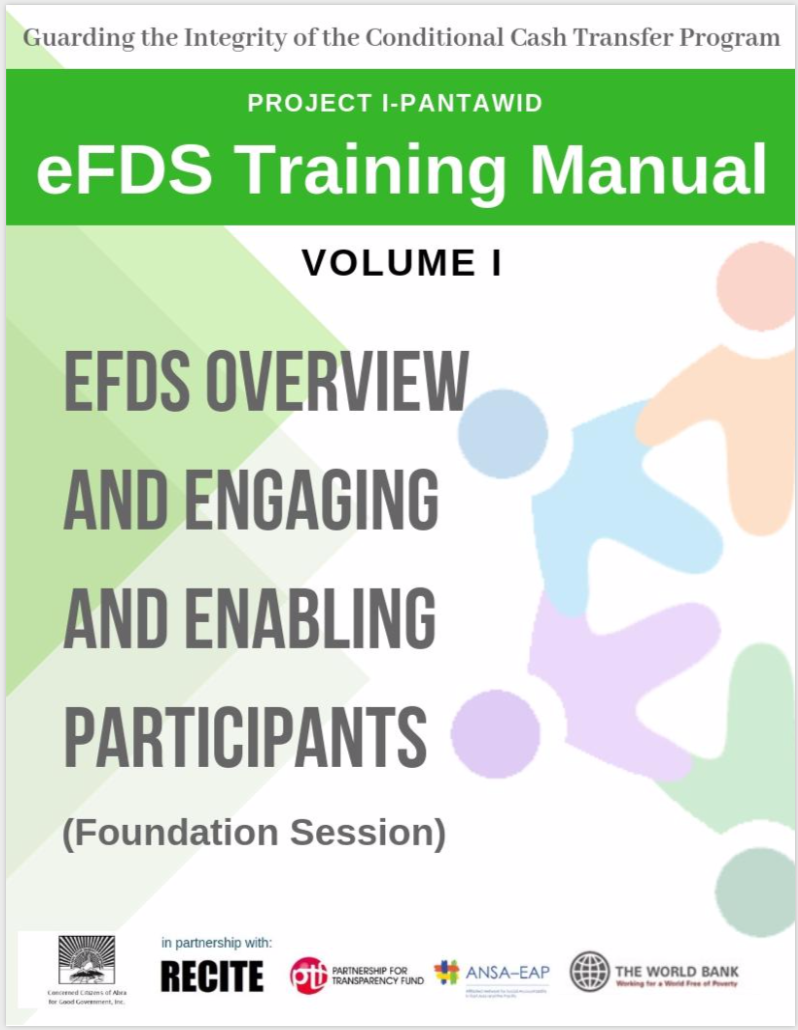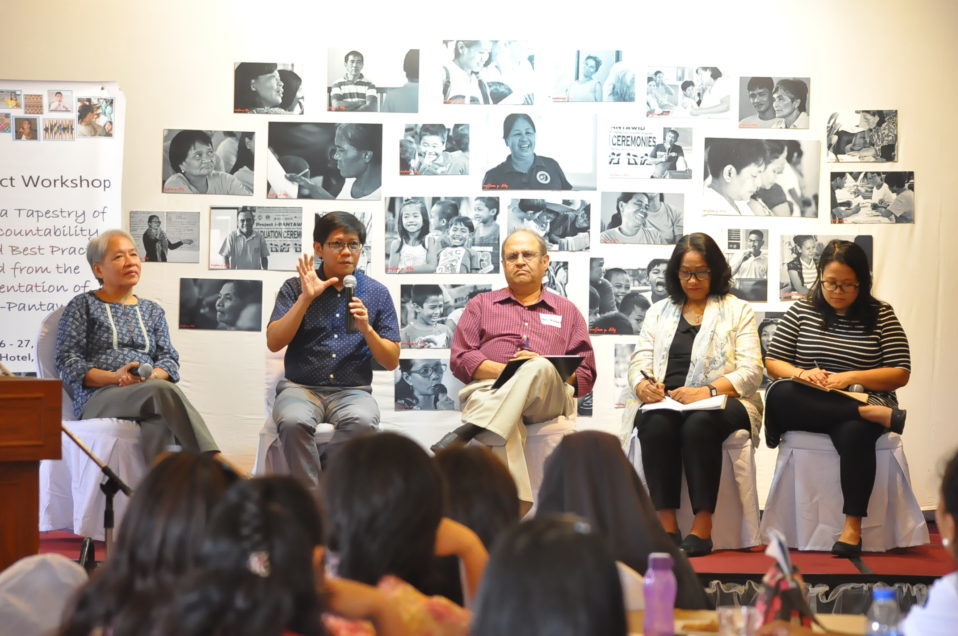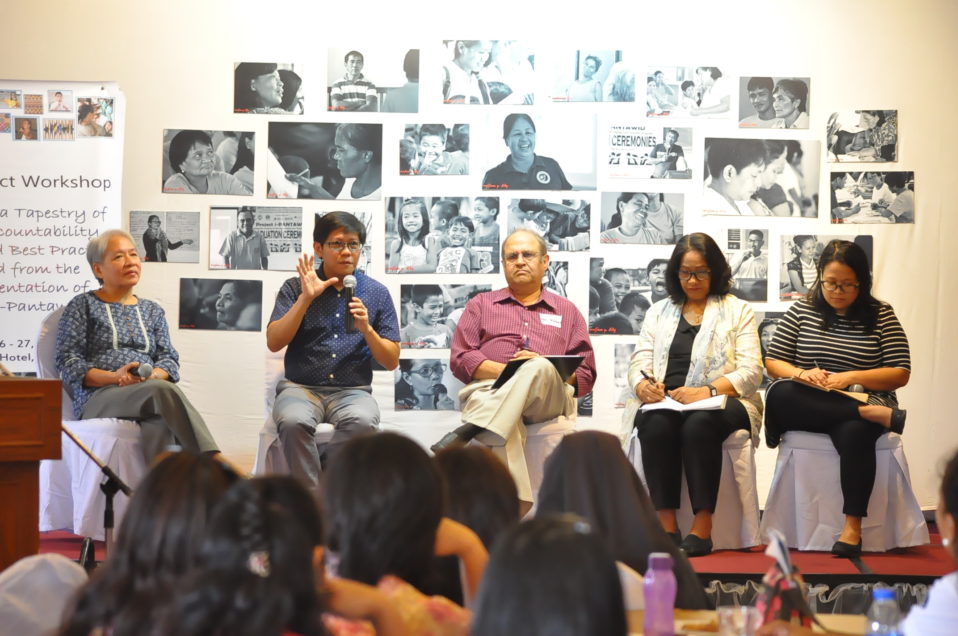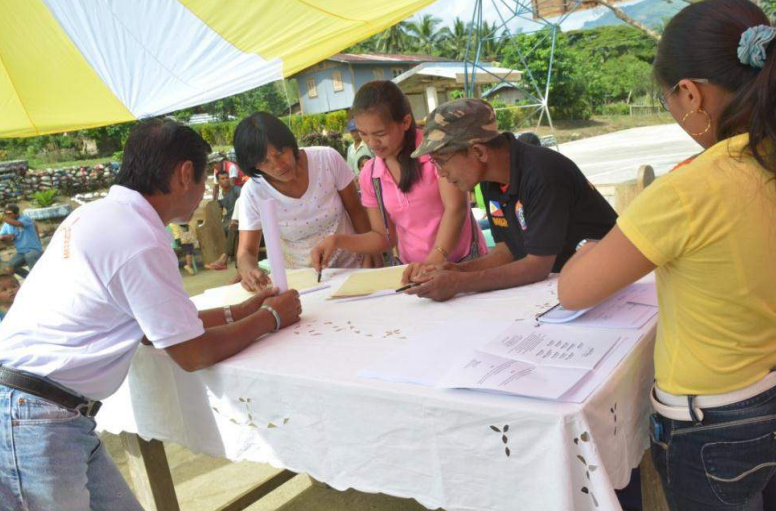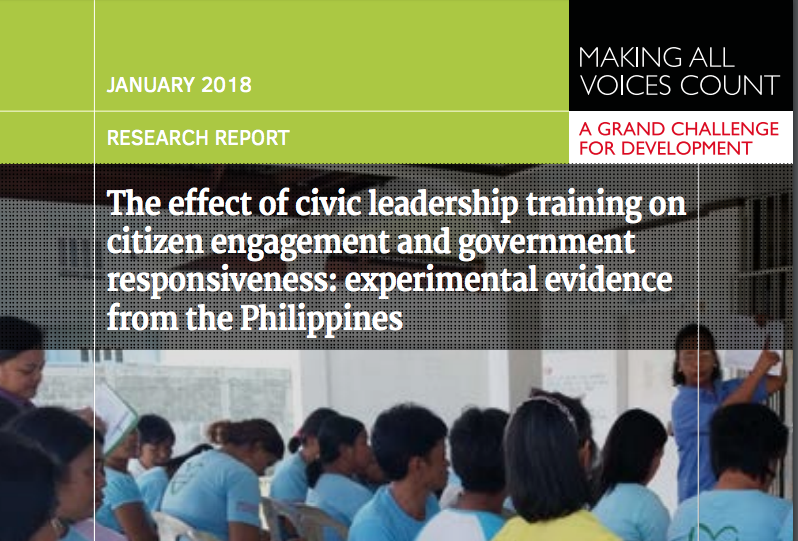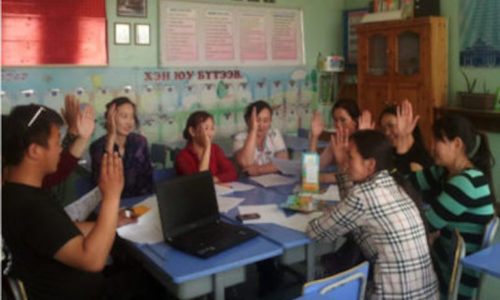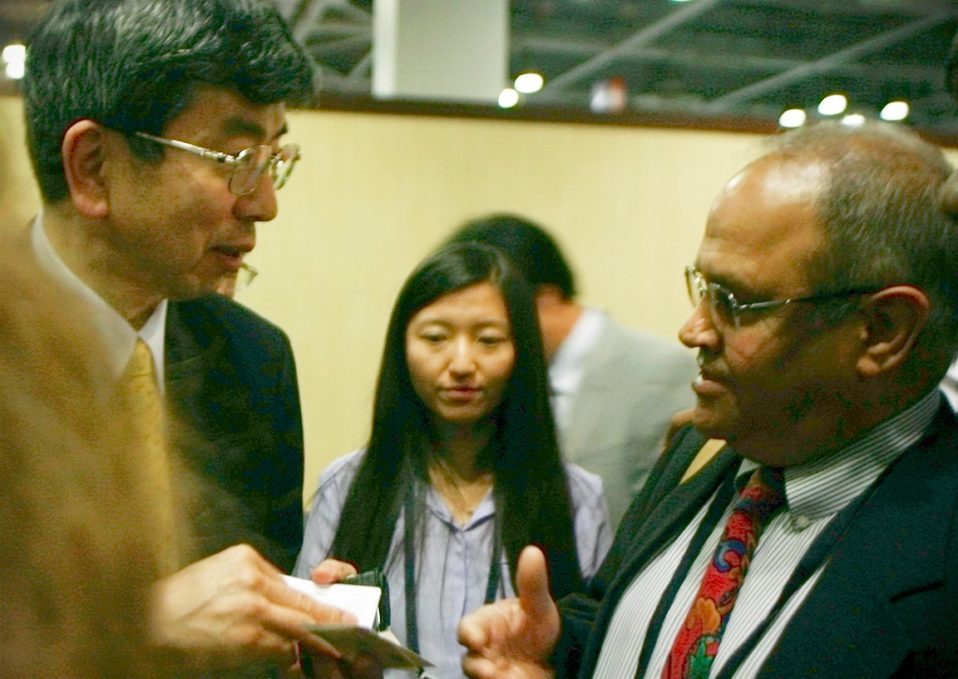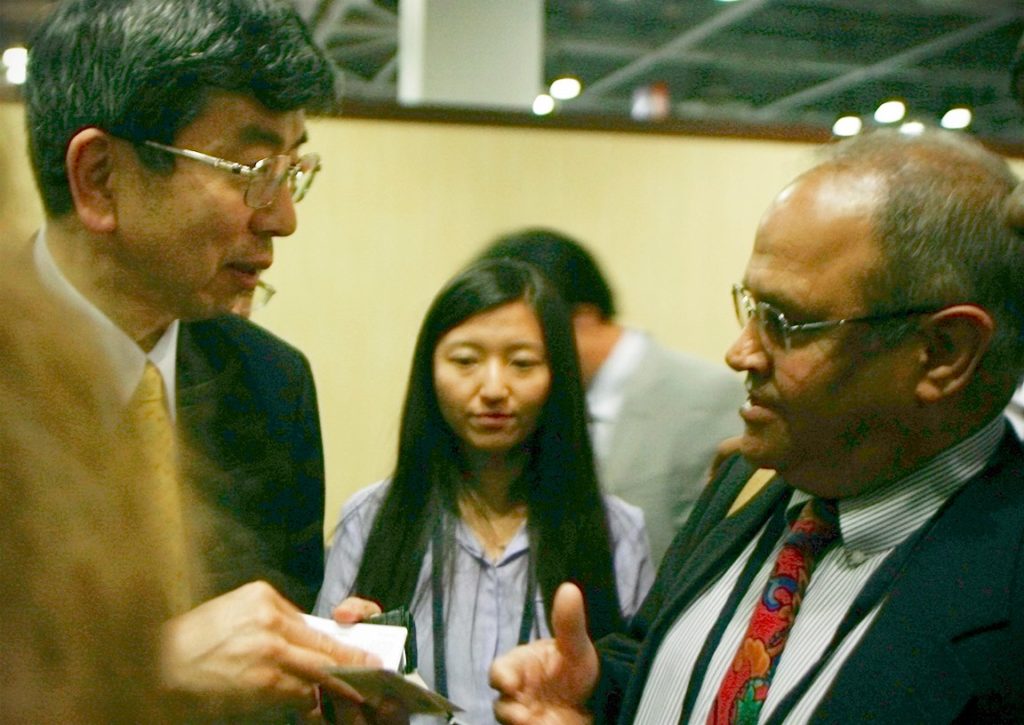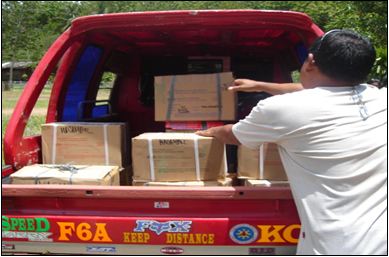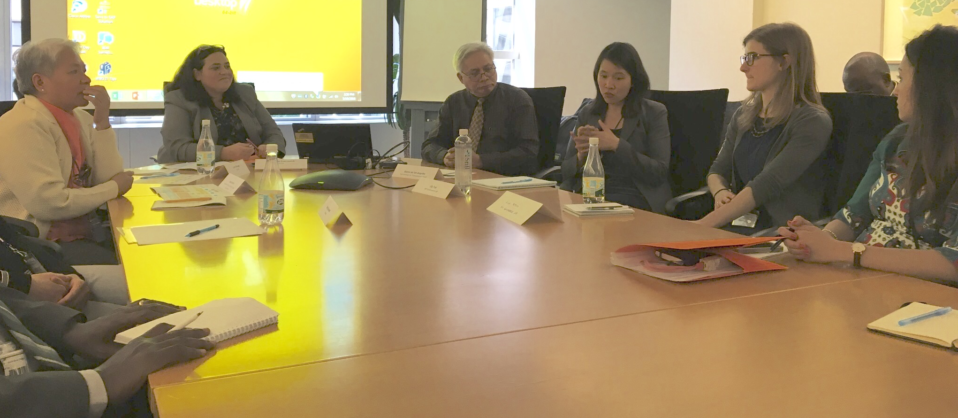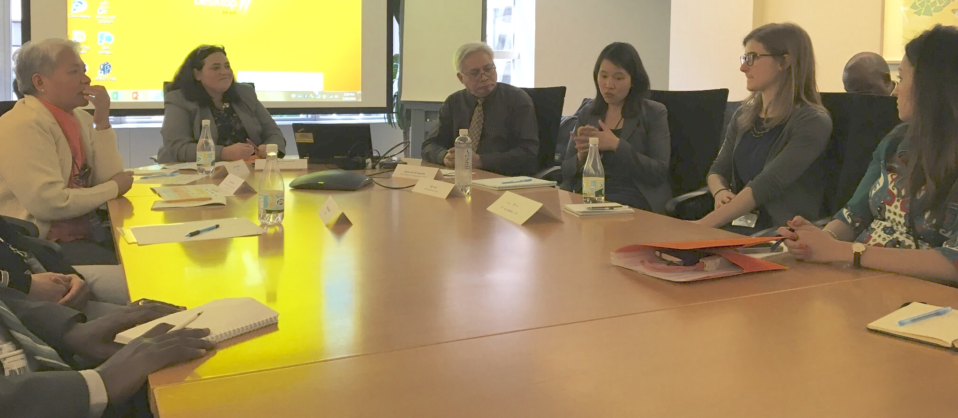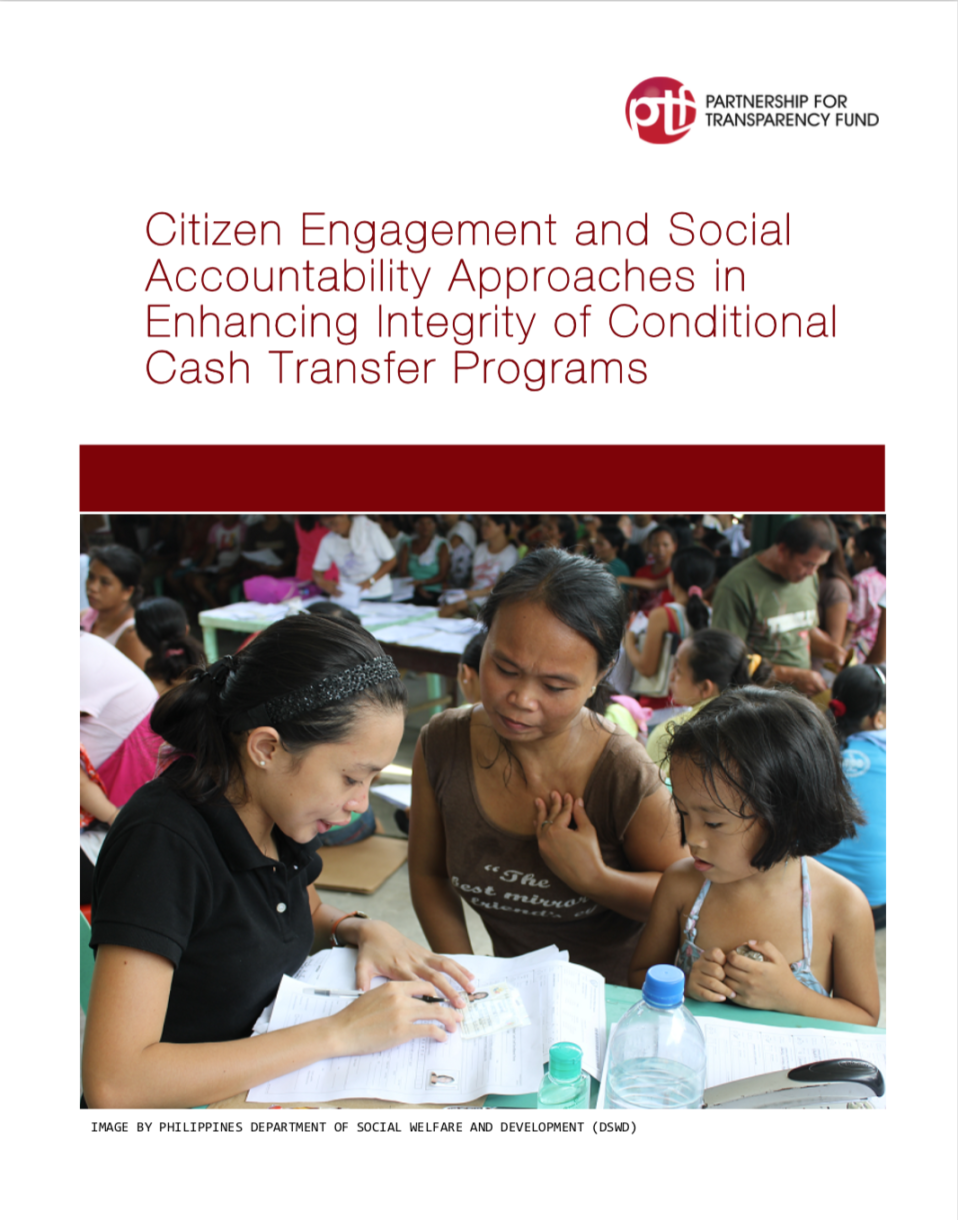At the Asian Development Bank’s 50th Annual Meetings, Partnership for Transparency and World Vision hosted Promoting Inclusive Accountable Public Services in Asia and the Pacific. The session deliberated on problems and challenges of fostering inclusive growth in Asia examining ways to maximize civil society involvement and effectiveness. Furthermore, the session considered the directions how ADB can cooperate with local CSOs to enhance its local impact and the role of Open Government Partnership (OGP) as an efficient tool of public-private partnership.
The opening remarks were offered by Mr. Bambang Susantono, ADB Vice President for Knowledge Management and Sustainable Development, Asian Development Bank (ADB) followed by a two round panel discussion moderated by, Dr. Vinay Bhargava, Chief Technical Adviser of Partnership for Transparency.
Mr. Deepesh Paul Thakur, Director of Advocacy and Justice for Children, South Asia and Pacific Regional Office of World Vision International defined the problems facing Asian countries including lack of implementation of SDG national policies, culture and social norms, and weak governance explaining how World Vision’s social accountability projects address these problems by increasing citizens’ voice and participation. World Vision conducts 630 programs in 48 countries, with its own approach “Citizen Voice and Action” (CVA). CVA is social accountability methodology which aims to develop better interaction between citizens and government, in order to improve public services that impact the daily lives of children and their families. Mr. Thakur concluded by offering some advice: social accountability should be included in SDG national plans and technical assistance for countries; effective partnership and platforms should be established; and most vulnerable groups included in the dialogue.
Mr. Sanjay Pradhan, CEO of OGP, gave examples of citizen participation in government following several approaches and examples:
- Upstream (expl. Participatory Budgeting in Brazil)
- Mid-stream (expl. Disclosure of Spending and Service Standards in Uganda)
- Downstream (exp. Citizen Feedback on Public Services in Vietnam and India)
- Downstream with Accountability (expl. Closing the Feedback Loop in the Philippines)
According Mr. Pradhan, these examples show that future belongs to “collaborative approach where government responds to citizen feedback”. Mr. Pradhan also provided recommendations how civil society, government and ADB can build on progress already made by using the OGP platform to co-create commitments for citizen participation and government responsiveness in public service delivery, and demand results. . Mr. Pradhan specifically outlined the role of ADB: “ADB lends for infrastructure, health and education, but to achieve the intended results requires collaboration between governments, civil society, private sector and citizens.”
Mr. Giorgi Kldiashvili, Director of Institute for Development of Freedom of Information gave Georgia as an example of how OGP principles and commitments contributed to the improvements in accountability, transparency, civic engagement and public service delivery on legislative and local levels. Similarly, Ms. Suzanne Siskel, Executive Vice President and COO of Asia Foundation provided examples of social accountability projects undertaken by the Asia Foundation in Mongolia, Indonesia and Sri Lanka.
Ms. Amy Leung, Deputy Director General, Sustainable Development Department, ADB spoke about the importance ADB attaches to inclusive development and knowledge partnerships for UN Sustainable Development Agenda 2030.
Mr. Dante de Los Angeles, Executive Director of Partnership for Transparency Fund (PTF) Asia Foundation discussed the role of PTF in promoting inclusive and accountable public services. Mr. de Los Angeles summarized common experiences from the 68 projects PTF has funded over the past 15 years in the Philippines, Mongolia, India, Nepal, and Bangladesh which helped to create new models of citizen participation that promotes inclusive public services. Mr. de Los Angeles advised the ADB to simplify its procurement guidelines to increase effectiveness, and facilitate involvement of local CSOs.
The presentations was followed with the Q&A. Interest to the presentation was high from the audience and responds from the panelist covered more details of the discussed topics.
Click here for more information on the 50th ADB Annual Meeting in Yokohama.

